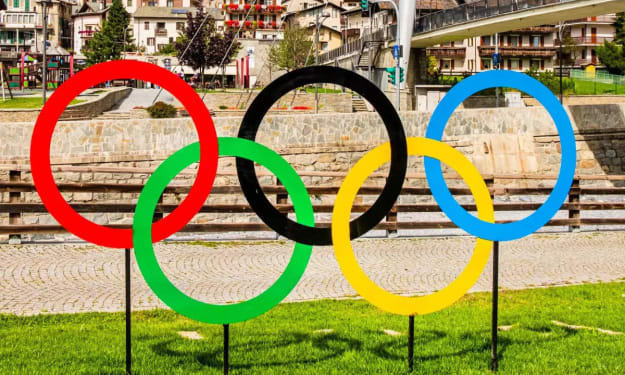
The Olympics is the pinnacle of global sporting events, where athletes from different nations compete to showcase their skills and achieve greatness. Held every four years, the Olympics is a celebration of unity, sportsmanship, and cultural exchange. However, with the occurrence of leap years, questions arise about where this grand event takes place and how it is affected by the extra day. In this blog post, we will explore the relationship between leap years and the Olympics, delving into the mystery of 366A and the div36aa connection.
Leap Years and the Olympics:
Leap years are an interesting occurrence that helps to keep our calendar in sync with the Earth's revolution around the sun. In a leap year, an extra day, February 29th, is added to the month of February, making it 366 days instead of the usual 365. This adjustment compensates for the slightly longer time it takes for the Earth to complete one orbit around the sun.
Traditionally, the Olympics have been scheduled in non-leap years, specifically during the summer or winter seasons. This has been the case since the modern Olympics were revived in 1896. However, in recent years, the International Olympic Committee (IOC) has made adjustments to accommodate leap years and maintain consistency in the event's scheduling.
The 366A Mystery:
The term "366A" refers to the code used by the IOC to designate the hosting city for the Olympics during a leap year. While the specific locations for upcoming Olympics are typically announced well in advance, the IOC has implemented a unique system for leap years to ensure a fair distribution of hosting opportunities.
Under the 366A system, the IOC designates a different city to host the Olympics during each leap year. This decision is made based on various factors, such as infrastructure, facilities, and the host city's ability to accommodate the scale and requirements of the event. The selection process for the 366A host city involves careful evaluation and consultation with prospective candidates, ensuring that the Olympics are held in a deserving location.
The Div36aa Connection:
The term "Div36aa" is a code that further classifies the host city selection for leap years based on specific criteria. This classification helps determine the type of Olympic Games to be held in that particular city during the leap year. Div36aa represents a broad categorization of events, including summer, winter, and special Olympics, allowing for a diverse range of sports and competitions.
The IOC takes into account various factors when assigning the Div36aa classification to a leap year host city. These factors include the city's climate, infrastructure, and suitability for specific sports. This ensures that the host city can provide optimal conditions for athletes and spectators, creating an unforgettable experience for all involved.
Conclusion:
Leap years add an intriguing twist to the scheduling of the Olympics. Through the 366A system and the Div36aa classification, the IOC ensures that every leap year is an opportunity for a different city to host this monumental event. These systems allow for a fair and well-organized selection process, considering various factors to determine the best possible host city for each leap year.
The Olympics transcend borders, bringing people together to celebrate the power of sport. As we continue to witness the evolution of the Olympics and their adaptation to different circumstances, the 366A system and the Div36aa classification remain important elements in ensuring the success of this global phenomenon.
So, the next time a leap year approaches, keep an eye out for the announcement of the 366A host city, as it marks another chapter in the history of the Olympics, showcasing the spirit of competition and camaraderie on the grandest stage of all.





Comments
There are no comments for this story
Be the first to respond and start the conversation.